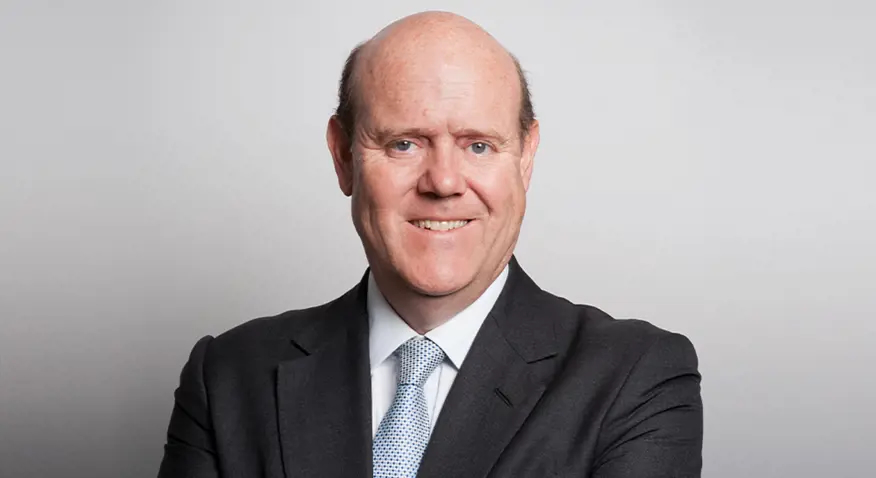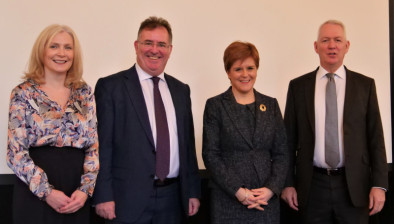CBI chairman calls for joint effort to revive UK economy

Rupert Soames
CBI chair Rupert Soames is set to use his first speech in Scotland to identify Scotland’s “pivotal” role in setting the UK’s economic trajectory and delivering the long-term sustainable growth the country needs to raise living standards and fund public services.
Speaking in Edinburgh before an invited audience of more than 200 business and political leaders, chairman Soames will say that a UK economy “with less than 1% growth is not thriving – it is merely surviving”. He challenges all parties standing for election to prove their pro-growth credentials with plans that can get the Scottish economy “firing on all cylinders.”
Mr Soames will be speaking ahead of a business and economy focused hustings, with representatives from Scotland’s political parties, including:
- Kate Forbes MSP, SNP, Deputy First Minister and Cabinet Secretary for Economy and Gaelic.
- Murdo Fraser MSP, Scottish Conservatives, Shadow Cabinet Secretary for Business, Economic Growth and Tourism.
- Daniel Johnson MSP, Scottish Labour, Shadow Cabinet Secretary for Economy, Business and Fair Work.
- Christine Jardine, Liberal Democrat, candidate for Edinburgh West (formerly spokesperson for the Cabinet Office, Women & Equalities and Scotland).
On the importance of growth at the general election, Soames will say: “I am convinced that this election, and how both Holyrood and Westminster work with business – and with each other – in the five years after the election, will determine whether or not our country and economy thrive for the next twenty.
“And let’s all agree that less than 1% growth is not thriving. Underperforming business investment – is not thriving. Seven out of 10 businesses struggling with labour shortages – is not thriving.
“The exam question for all parties this election must be – how to get that mojo back. How to create a new narrative for the UK and for Scotland, which can once again get our economy firing on all cylinders, and deliver the long-term, sustainable growth we urgently need.
“Instead of the sugar rush of short-term politics, businesses want to hear all parties speak to how they can work with business – and each other – to deliver in the long-term and in the national interest.”
Acknowledging the economic shocks businesses have experienced in the last eight years as a result of Brexit, Covid, and other crisis, Soames will highlight Scotland’s “pivotal” role in returning the UK to long-term sustainable growth.
He will point out the UK economy’s has been left with “anaemic growth, stubbornly persistent labour and skills shortages, and a bruised international reputation”, adding, “One thing is crystal clear: Scotland will have a pivotal role in how we reclaim that reputation and set the economy back on the path to growth.
“We have heard time and again how Scotland will be decisive for this election, but business knows that its role will, if anything, be even greater afterwards.
“Scotland is an energy powerhouse, with natural resources that are the envy of the world, the best-educated workforce in the UK, the home of two green freeports to supercharge our exports.
“But we cannot unlock Scotland’s potential for growth without facing the fact that Scottish productivity underperforms the already dire performance of the rest of the UK.”
On supporting Scotland’s workforce, Soames will say: “As our members tell us time and again, businesses can’t operate, let alone grow, without the people and skills they need.
“From Westminster, we need a clear-eyed conversation about where immigration is necessary to tackle the most immediate shortages. Holyrood, meanwhile, must forge an education and skills system that is agile, flexible and responsive to business.
“Both governments must also look again at the Apprenticeship Levy – and reverse the foolishness of Scottish businesses not getting back in value what they pay in.”
On building a more competitive tax and regulatory environment, Soames will say:
“We need a business environment that will give great Scottish businesses the confidence to invest for the long-term.
“That calls for Holyrood and Westminster to work together to deliver a more competitive tax system, with regulators who are world-class.
“A good start would be a long-term business tax roadmap from Westminster – matched by a parallel, long-term strategy from Holyrood.”
On capitalising on green opportunities, Soames will say:
“We must seize the immense growth opportunities from Net Zero, which CBI research values at up to £57bn across the UK.
“Scottish energy is a key part of this. At the end of 2023 there were over 500 renewable energy projects in the Scottish planning pipeline – with a potential capacity of over 25 gigawatts.
“The trick is delivering them: a problem right across the UK because of planning systems fraught with snags, tripwires and skills shortages.
“In fact, the devolved planning system is now Scotland’s lowest funded local authority department.
“Business needs Holyrood to urgently address this. Growth requires it. Net zero requires it.
“We need a simplified process – and one which works efficiently and at pace – with regular funding and urgent steps to plug the shortage of skilled planners.”
On the role of business as a partner in prosperity, Soames will say: “Whatever happens on the fourth of July, one thing of which I am certain is that neither Holyrood nor Westminster will be able to do this by themselves. Not without business – and not without each other.
“Governments cannot deliver growth. Only business can. But business needs government to provide the institutional scaffolding that supports growth.
“Only government can set the rules for regulators, create balanced employment laws, manage an efficient and effective civil service, and invest in the infrastructure business needs to succeed. Business relies on government to deliver this and many other things.
“And, because of the complex interaction of reserved and devolved powers, business also relies on Holyrood and Westminster continuing to work together – in collaboration not confrontation as they have with such great success on green freeports like Inverness and Cromarty Firth.”









